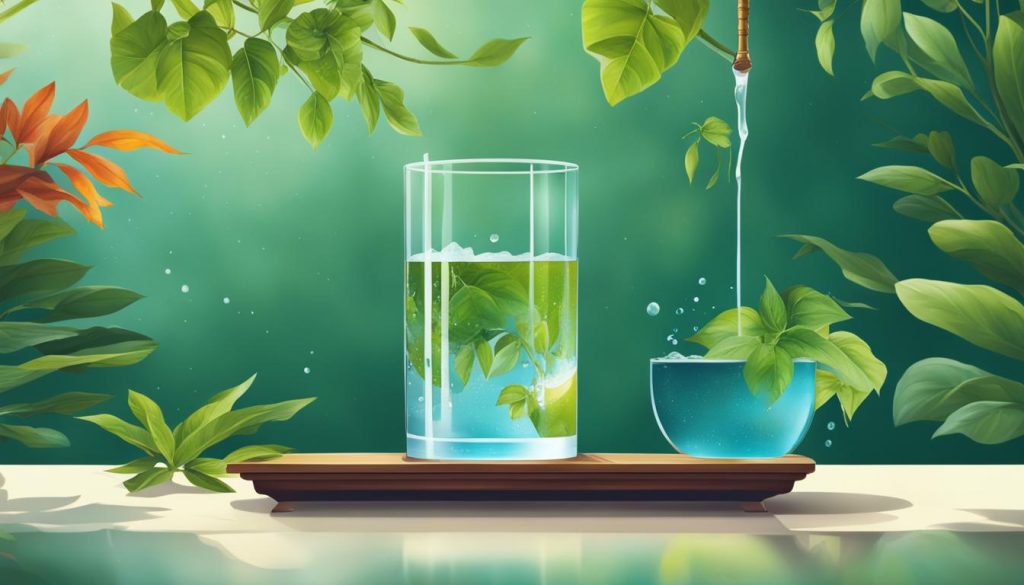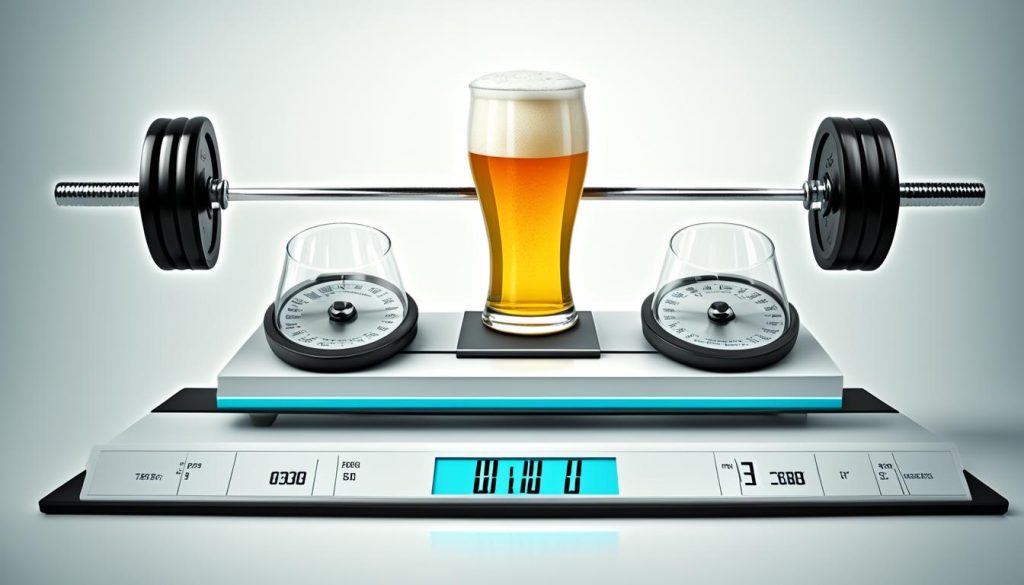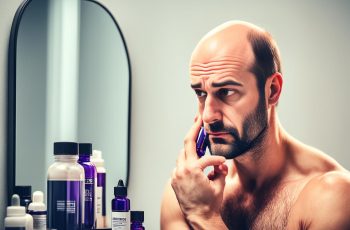Ad Blocker Detected
Our website is made possible by displaying online advertisements to our visitors. Please consider supporting us by disabling your ad blocker.
You’ve probably heard the rumors that link sinking a few beers with lower testosterone levels, but just how accurate are these whispers? Whether you’re unwinding after work with a cold one or enjoying a game night with friends, the possibility that beer could be impacting your testosterone production is worth exploring. The notion that beer can lead to a decrease in this vital hormone could possibly disrupt your overall health and vitality. Uncovering the truth behind the effects of beer on testosterone levels is essential for your hormonal well-being.
Lifestyles, habits, and the beverages we imbibe play significant roles in our health, and it’s crucial to sift through speculation to understand the true relationship between beer and testosterone production. With various studies slicing through the haze of half-truths and outright myths, we’re here to lay it all out on the table. As it turns out, the question “does beer lower testosterone?” isn’t met with a simple yes or no, but rather an intricate pattern of biology and chemistry that reveals much about the beverages we choose to consume.
Key Takeaways
- Deep dive into the discussion about how beer could potentially influence testosterone.
- Fact-checking common myths surrounding beer consumption and hormonal health.
- Analyzing how ingredients in beer, like hops, may affect your body’s hormone regulation.
- Understanding the significance of moderation in alcohol consumption for maintaining testosterone levels.
- Exploring the scientific evidence to separate fear from fact when it comes to drinking beer and its effects on your hormones.
- Gaining insight into lifestyle choices that can optimize or impair testosterone production.
Exploring the Link Between Alcohol and Hormone Levels
When you reach for a cold one after a long day, it’s unlikely that the effect of alcohol on your hormone levels is the first thing on your mind. Yet, the relationship between alcohol and testosterone levels in men is a critical conversation worth discussing. Understanding how alcohol consumption could be influencing your body’s hormone regulation is key to maintaining not only your reproductive health but also your overall well-being.
The Biological Basis of Testosterone Regulation
The impact of alcohol on testosterone begins within a delicate endocrine system, with the hypothalamic-pituitary-gonadal (HPG) axis at its core. Typically, this system operates with precision, releasing gonadotropin-releasing hormone (GnRH), which then stimulates the release of luteinizing hormone (LH). LH is the catalyst for Leydig cells in the testes to produce testosterone. However, introducing alcohol into the equation can throw this meticulous process off balance.
How Different Drinking Patterns Can Influence Hormonal Changes
The effects on your beer and hormone levels in men depend greatly on your drinking habits. Those who indulge occasionally might escape with nominal hormonal fluctuations. But if you’re someone with a penchance for frequent drinking, the narrative is different altogether. Chronic alcohol use could lead to a significant decrease in testosterone, as well as other alcohol and testosterone levels related issues.
Understanding the Effects of Alcohol on the Male Reproductive System
Imagine the Leydig cells in your testes as workers in a factory. When you drink excessively, it’s akin to cutting their power supply; alcohol diminishes the release of GnRH and LH, which are essential for these cells to produce testosterone. Over time, this can not only affect your beer and hormone levels in men but can lead to a myriad of reproductive challenges. Your age, health status, and frequency of drinking all dictate whether the suppression of testosterone is a temporary blip or a longer-lasting downturn.
The interplay between alcohol and hormone levels is complex and multi-faceted, profoundly impacting men’s health across various aspects. By informing yourself of how your drinking patterns may affect you, you can better manage your health and mitigate risks associated with alcohol and testosterone levels. Remember, moderation is key to not only enjoying your favorite brew but ensuring it doesn’t brew trouble for your hormonal health.
The Science Behind Beer and Testosterone Production
When you enjoy a cold glass of beer, you’re often looking for relaxation and sociability, but what you might not consider is how beer consumption and testosterone might be connected. The interplay between beer and male hormones, particularly testosterone, involves numerous biological elements that could impact your hormonal balance.
One of the critical factors to be conscious of is how certain components found in beer, like the phytoestrogens in hops, might modify your hormone levels. These plant-based compounds mimic estrogen, the primary female sex hormone, and can have subtle yet noticeable effects on the male body when beer is consumed in significant quantities. This balancing act begs the question of how testosterone and drinking beer coexist within your body’s complex hormonal ecosystem.

Understanding how different beverages interact with your body can help you make informed choices. For this reason, let’s compare the ingredients commonly found in beer, wine, and spirits, and their potential impact on testosterone levels:
| Beverage | Common Ingredients | Associated Hormonal Effects |
|---|---|---|
| Beer | Hops, Barley, Yeast | Increases estrogen levels potentially lowering testosterone |
| Wine | Grapes, Fermentation Agents | Minimal impact when consumed in moderation |
| Spirits | Distilled Grains, Sugars | Can disrupt the hormonal milieu with excessive intake |
Moderate beer consumption generally poses minimal threats to hormonal balance. However, the narrative shifts quite dramatically when we address binge drinking and chronic heavy use. The latter sows the seeds for a wider array of hormonal disturbances that go beyond testosterone alone, encompassing broader physical and emotional health consequences.
Remember that the key to maintaining a healthy testosterone level is striking a balance. Being mindful of not only the quantity but also the type of alcohol you drink is of utmost importance. Consider this the next time you reach for that pint—moderation is not just a virtue; in the realm of beer consumption, it’s a crucial component of your hormonal wellness.
Uncovering the Truth: Does Beer Lower Testosterone?
As you enjoy a frothy pint, have you ever pondered on how your beverage of choice could be affecting your hormone levels? The inquiry into whether beer and testosterone production are at odds is more than casual barstool banter—it’s a subject of scientific scrutiny. Let’s delve into what research has to say about the interplay between your favorite brews and your hormonal health.

The Short-Term Versus Long-Term Impact of Beer on Testosterone
It’s a valid concern you may have—does alcohol affect testosterone levels in ways that should have you cautious about your beer intake? The answer isn’t straightforward. Initial studies indicate that a pint or two might lead to a short-term dip in testosterone, but it’s not typically cause for alarm, as levels often normalize with time. However, if those casual drinks escalate to more regular sessions, you could be looking at a more lasting effect on your testosterone levels. The effects of beer on testosterone levels are dose-dependent—a crucial point for anyone monitoring their hormonal health.
Sifting Through Research: What Studies Really Show About Beer Consumption
Research on beer and testosterone production presents a varied landscape. Some studies suggest a direct correlation between heavy drinking and lowered testosterone. Others offer a nuanced view, indicating that while heavy consumption does influence hormone levels, moderate beer-drinking does not necessarily portend hormonal imbalance. Observational studies, which often compare health markers among different population groups, consistently highlight the risk of excessive consumption but don’t always consider the myriad lifestyle factors at play.
However, what emerges from the data is a clear trajectory: while your body may forgive the occasional indulgence, repeated heavy consumption can give rise to a chronically lower testosterone level. What’s imperative here is maintaining a balance and understanding your individual limits.
- Short-term consumption effects are typically transient
- Chronic heavy drinking may lead to more permanent hormonal disruptions
- Lifestyle and health status greatly influence individual outcomes
Whether you’re a social sipper or enjoy unwinding with a beer each night, it’s important to consider your long-term hormonal health. Stay informed, savor responsibly, and keep tabs on how your habits affect your body—it’s the wisest path to ensuring your well-being in the long run.
Healthy Habits: Balancing Alcohol Intake and Hormonal Health
When you’re aiming for a healthier lifestyle, understanding the connection between your habits and hormonal health is paramount. For men, maintaining optimal testosterone levels is not just a matter of physical vitality but also a crucial aspect of overall well-being. Let’s delve into how you can cultivate healthy habits for testosterone, particularly in relation to balancing alcohol intake with a nourishing diet and regular exercise.
Responsible Drinking and its Effects on Men’s Health
Alcohol, when consumed in moderation, can be a part of a balanced lifestyle. However, excessive drinking can disrupt your hormonal equilibrium, leading to decreased testosterone levels. To ensure your drinking doesn’t interfere with your hormonal health, adhere to recommended guidelines and understand your individual limits. Awareness and education about the additives and ingredients in alcoholic beverages empowers you to make more informed choices, safeguarding your testosterone levels.

Navigating Through Misinformation: Diet, Exercise, and Testosterone
Diet and exercise play indisputable roles in the maintenance of hormonal health. A nutrient-rich diet supports the body’s testosterone production while physical activity, particularly strength training, has been proven to boost testosterone naturally. Below you’ll find a simple guide to incorporating diet and exercise into your routine for optimal hormonal health:
- Consume a balanced diet rich in proteins, healthy fats, and complex carbohydrates.
- Include testosterone-boosting foods such as tuna, egg yolks, and fortified milk in your meals.
- Stay active with regular physical activities; aim for a mix of cardio and resistance training.
- Manage stress through mindfulness practices like yoga or meditation, as chronic stress can lower testosterone levels.
- Get quality sleep, as adequate rest is critical for testosterone production.
By incorporating these practices into your lifestyle, you nurture your body’s ability to produce testosterone efficiently. While navigating the myriad of information available, always steer towards reliable sources and consider consulting with a healthcare provider for personalized advice tailored to your unique health needs.
Conclusion
When it comes to balancing a love for beer with maintaining male hormonal health, it’s clear that knowledge and moderation are key. The conversation around managing alcohol and testosterone levels isn’t about elimination, but rather about informed choices that support your overall well-being. Let’s explore practical tips that safeguard your hormonal health without having to forego enjoying a cold brew on occasion.
Practical Tips for Managing Alcohol Consumption and Testosterone Levels
Understanding the fine line between moderate and excessive drinking can significantly influence your testosterone levels. Moderation is the magic word here – aiming for a few drinks rather than a full-blown binge can make all the difference. Factor in the quality and type of beer you consume, as these can also have varying effects on hormones. A conscious approach to alcohol, combined with a nutritious diet and proper hydration, lays the groundwork for keeping your testosterone levels in check. Remember, occasional drinkers may rebound faster, but it’s the chronic patterns that lay the groundwork for long-term impacts on hormonal health.
Fostering a Balanced Perspective on Beer and Male Hormones
Your unique physiology plays a notable role in how you respond to alcohol. Age and genetics determine your body’s ability to process alcohol and regulate testosterone, which means there’s no one-size-fits-all solution or reaction. It’s possible to adopt a lifestyle that mitigates the influence of beer on your hormones. Spacing your drinking sessions and choosing the right moments to enjoy alcohol can help manage alcohol’s impact on testosterone levels. Additionally, if you’re a bodybuilder or fitness enthusiast, it’s vital to understand how testosterone fluctuations may impact your muscle development and training results.

By embracing these insights, you can maintain your male hormonal health while indulging in your preferred brew. It’s about having a responsible perspective on beer and hormones – one that respects the balance your body strives to maintain. So, the next time you raise a glass, do so with knowledge and respect for your body’s needs and boundaries.
Further Considerations in the Beer-Testosterone Dialogue
As we delve deeper into the nuances of how beer may influence your body’s hormonal milieu, it’s crucial to emphasize the necessity for further research on beer and testosterone. Current studies have scratched the surface, but there’s an ocean of complexities yet to be unraveled. As such, the conversations around beer’s potential hormonal impact should be informed by ongoing scientific inquiry, ensuring that each pint you enjoy is better understood in the context of your health.
In your quest to maintain a hormonal balance, understanding beer’s hormonal impact is a matter of personal and public health significance. As research evolves, so should our perspectives on lifestyle choices. We now know that the issue extends beyond a simple causation; it involves a broader spectrum of factors ranging from genetics to dietary patterns. Therefore, reassessing common beliefs and revisiting testosterone misconceptions with fresh, evidence-based insights is not just enlightening—it’s essential.
While you navigate the myriad of health information, remember that the journey toward hormonal health is personal and varies for each individual. The key takeaway? Stay informed, drink responsibly, and be open to new findings that help fortify the bridge between your favorite brews and overall well-being.
FAQ
Does beer lower testosterone levels?
Chronic and heavy beer consumption has been shown to negatively affect testosterone levels due to the alcohol content and potentially due to phytoestrogens found in hops. However, moderate consumption might not have the same significant impact.
Can different drinking patterns affect hormone levels differently?
Yes, occasional moderate drinking may lead to negligible changes in hormone levels, while chronic heavy drinking can cause a more substantial reduction in testosterone levels.
How does alcohol affect the male reproductive system?
Alcohol can disrupt the hypothalamic-pituitary-gonadal (HPG) axis, leading to decreased release of gonadotropin-releasing hormone (GnRH) and luteinizing hormone (LH), which are both crucial for testosterone production and can negatively impact Leydig cell function in the testes.
What are the short-term versus long-term impacts of beer on testosterone?
Short-term consumption of beer may lead to temporary decreases in testosterone levels. In contrast, long-term or chronic consumption can lead to longer-lasting or more permanent reductions in testosterone.
What do current studies show about the effect of beer on testosterone levels?
Current studies offer mixed results. Some suggest that ingredients in beer such as hops can temporarily affect testosterone levels, while others find no significant long-term impact on hormone balance.
What healthy habits can help balance alcohol intake and hormonal health?
Moderation in alcohol consumption, a balanced diet rich in nutrients, regular physical activity, and proper hydration can all support hormonal health and mitigate the negative effects of alcohol on testosterone levels.
How can one responsibly drink alcohol without severely impacting men’s health?
Men can drink responsibly by limiting intake to moderate levels, choosing quality over quantity, staying hydrated, and ensuring they do not engage in binge drinking behaviors.
How can misinformation about diet, exercise, and testosterone be navigated?
Staying informed through credible sources, speaking with healthcare professionals, and understanding that lifestyle factors such as diet and exercise play significant roles in maintaining healthy testosterone levels can help navigate through misinformation.
What role does further research play in understanding beer’s impact on testosterone?
Ongoing research is essential in providing a clearer picture of how beer and its ingredients affect testosterone levels, which can help in developing guidelines for consumption and informing the public about hormonal health.
Are there practical tips for managing alcohol consumption to maintain healthy testosterone levels?
Practical tips include drinking in moderation, choosing lower-alcohol options, staying hydrated, spacing out drinking occasions, and maintaining a healthy lifestyle with diet and exercise to help manage alcohol consumption and testosterone levels.
Does Watching Pornography Have the Same Effect on Testosterone as Drinking Beer?
Research has shown that when it comes to pornography and testosterone levels, there seems to be a temporary spike in testosterone levels when individuals watch pornographic material. However, this spike is not equivalent to the effect of drinking beer on testosterone levels.


